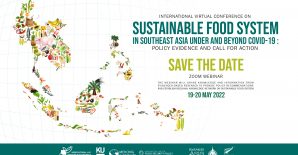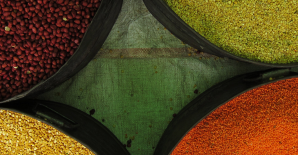News
ADB: productive employment needed to boost growth in Tajikistan
The Asian Development Bank's Development Outlook 2018 projects Tajikistan's GDP growth to reach 6.0 percent in 2018 and 6.5 percent in 2019. ADB Tajikistan country director Pradeep Srivastava further commented that Tajikistan needs to undertake structural reforms in order to fully take advantage of its demographic dividend. - The Financial
Asian Development Bank forecasts 3.2 percent Kazakh GDP growth
Kazakhstan's economic growth is projected to slow to 3.2 percent in 2018 from 3.8 percent in 2017, according to the ADB's Development Outlook 2018. The report adds that growth is expected to rise to 3.5 percent in 2019 as investment picks up. - Astana Times
Labor migrants' remittances from Russia to banks in Tajikistan reportedly increasing
Total remittances from Russia to Tajikistan totaled $2.5 billion in 2017, up from $1.9 billion in 2016, according to the Central Bank of Russia. The figures represent remittances moderated by money transfer operators, with the average amount remitted approximately $98. Although the new data indicate a continuing recovery for remittances from Russia to Tajikistan, they pale in comparison to the $4.2 billion sent in 2013 and $3.8 billion in 2014. - Asia-Plus
Tajikistan reducing flour imports
Tajikistan's Ministry of Economic Development and Trade announced that flour imports are gradually decreasing while wheat imports appear to be increasing. Kazakhstan is the main exporter of flour and wheat to Tajikistan, which has expanded its own flour production capacity in recent years and currently supplies approximately 90 percent of its domestic demand. - AzerNews
The only state-run veterinary clinic shut down in Tajikistan
On April 1, the only veterinary clinic operating under the State Service for Veterinary Supervision was shut down following a decision by the Committee for Food Security under the Government of Tajikistan. Along with the veterinary clinic, the State Service for Phytosanitary Supervision, the State Service for Pedigree Stock Breeding, and the State Seed Breeding Inspectorate was also shut down. According to a former head of the veterinary clinic, the closings are a stopgap measure until a new modernized organization is established. Following the closures, only two private veterinary clinics - one in Dushanbe and the other in Khujand - remain in operation in the country. - Asia-Plus
Uzbekistan: export of fruits and vegetables increase 51.7 percent
Fruit and vegetable exports in the first three months of 2018 totaled $110.8 million, an increase of 51.7 percent from the same period last year, according to the State Statistics Committee of Uzbekistan. Vegetable exports, comprising 57.2 percent of total horticultural exports, saw the biggest increases at 69.8 percent. Kazakhstan, Afghanistan, and Russia were the major destinations for Uzbek fruits and vegetables during this time. - Kun.uz
Kyrgyzstan: new slaughterhouse opens in Jalalabad
A new slaughterhouse was opened in Jalalabad on April 14 as part of the Kyrgyz government's "Financing Agriculture 6" program. The 17 million som (approximately $250,000) facility will process 100 cattle and 300 small cattle per shift and will soon be joined by similar facilities in Uzgen, Ala-Buka, and Sokuluk. - AKIPress
Analysis & Related Information
New Kyrgyzstan president sails through first EU visit
Kyrgyz president Sooronbay Jeenbekov made his first visit to Brussels this week, meeting with European Union leaders including the heads of the European Commission, European Council, and European Parliament. The EU is looking to sign a Partnership and Cooperation Agreement similar to the one it concluded with Kazakhstan in December 2017. - Euractiv
Why are citrus fruits and bananas not allowed into Uzbekistan?
This investigative report by Kun.uz attempts to explain why prices for citrus fruits have risen sharply since late March in Uzbekistan. While the article concedes that seasonal factors are responsible for the price increase (since the demand for imported citrus peaks in the early spring before locally-grown fruits are planted), it suggests that quarantine and other sanitary restrictions at the border could also be at play. Tropical fruits, with the exception of lemons, are almost exclusively imported from abroad. - Kun.uz
Tajikistan studying draft route of Tajikistan-Afghanistan-Turkmenistan railway
Tajikistan's transport ministry has offered the government a draft route plan for the Tajik section of the proposed Tajikistan-Afghanistan-Turkmenistan railway. The Asian Development Bank is coordinating the project, which aims to turn Afghanistan into a transit hub and provide economic benefits to all three landlocked countries. - AzerNews
Around 1.4 million people live in flooding-prone areas in Kazakhstan
According to Kazakhstan's prime minister Bakytzhan Sagintayev, around 1.4 million people and more than 32,000 buildings are located in areas vulnerable to flooding. Sagintayev was responding to a legislative inquiry regarding private insurance against natural disasters. Insurance services are not widely popular in Kazakhstan because of their perceived high price. The World Bank has proposed to diversify the sources of financing through a mandatory state home insurance program and the creation of an autonomous fund supported by the state. - AKIPress
Tajikistan: with e-wallets scuppered, shoppers more stranded than ever
Shoppers in Tajikistan are finding it increasingly difficult to make online purchases following a law adopted in March of last year requiring electronic-wallet companies to re-register under domestic banks. The law was originally intended to increase revenue by collecting taxes from multinational corporations on online purchases. Popular e-wallet companies include Qiwi, Yandex.Money, and WebMoney and often represent the only option for local residents to make overseas purchases. As a result of ongoing problems in Tajikistan's financial sector, Visa and MasterCard ceased services with their local partners. On April 17, it was reported that the National Bank of Tajikistan has begun granting licenses to a number of international payment systems on a three-year basis. - EurasiaNet, Asia-Plus
Connecting Asia: Uzbekistan looks to capitalize on Central Asia's transport
Uzbekistan is undertaking a five-year program to improve its transport infrastructure, which will also focus on the construction of several international transportation corridors that would link the country with the Middle East, South Asia, China, and Europe. The author, representing a thinktank affiliated with the Uzbek foreign ministry, views transport connectivity not only as a means for Uzbekistan to expand its trade reach but also as an opportunity to develop closer ties with large and dynamic economies nearby such as India, Iran, and Pakistan. - The Diplomat
New York Times: a hopeful moment for Uzbekistan
This opinion piece by the New York Times' editorial board takes a positive view of Uzbek president Shavkat Mirziyoyev's recent efforts to rein in the country's security apparatus and reconcile Uzbekistan's fraught relations with its neighbors. - New York Times
Publications & Reports
Asian Development Outlook 2018: how technology affects jobs
Asian Development Bank (2018).
Are overweight and obesity in children risk factors for anemia in early childhood? Results from a national nutrition survey in Tajikistan
M. Crivelli et al. (2018). International Journal of Public Health, online publication ahead of print.
Adaptive landscape agricultural development in the southeast of the republic of Kazakhstan
S. Kenenbayev, A. Jorgansky (2018). Research on Crops, 19(1), pp. 144-149.
Making the 'empowered woman': exploring contradictions in gender and development programming in Kyrgyzstan
E. Kim, A. Myrzabekova, E. Molchanova, O. Yarova (2018). Central Asian Survey, electronic publication ahead of print.
Response of soybeans to nitrogen nutrition conditions and nitrogen fertilizers on soils of the dry steppe area of northern Kazakhstan
A. Kurishbaev, V. Chemenok, E. Nurmanov (2018). Research on Crops, 19(1), pp. 48-52.
Financial and emotional support in close personal ties among Central Asian migrant women in Russia
O. Kornienko, V. Agadjanian, C. Menjivar, N. Zotova (2018). Social Networks, 53(May 2018), pp. 125-135.
Panel estimation for renewable and non-renewable energy consumption, economic growth, CO2 emissions, the composite trade intensity, and financial openness of the commonwealth of independent states
E. Rasoulinezhad, B. Saboori (2018). Environmental Science and Pollution Research, electronic publication ahead of print.
Agro tourism potential of Uzbekistan
A. Siddikov (2018). American Journal of Economics and Business Management, 1(2), pp. 36-42.
Regulation of irrigation: modeling of bioclimatic coefficients of agricultural cultures
G. Zhidekulova, Z. Mustafayev, A. Kozykeyeva (2018). Research on Crops, 19(1), pp. 132-143.
Events & Call for Papers
New Round of Collaborative Research on Food Security in Eurasia 2018
Call for applications. The Eurasian Center for Food Security and World Bank are announcing collaborative research on the theme of policies aimed at supporting food value chains by (1) improving food quality and nutrition or (2) avoiding food loss. Research will take the form of case studies and selected research teams will receive funding from the World Bank. Please see the above link for further details. Deadline to submit applications is 5 May 2018.
2018 Regional Summer School for Young Economists
Call for applications. 4 – 15 June 2018 in Tashkent, Uzbekistan. Organized by the International Food Policy Research Institute (IFPRI) and Westminster International University in Tashkent (WIUT). The course will largely focus on developing econometric analysis, policy analysis, and quantitative research skills for use in economics and related social sciences. The course is open to individuals who are engaged in research or are preparing for a career in research, are fluent in English, and are 35 years old or younger. Please click on the above link for further details. Deadline to submit applications is 20 April 2018.
"Agriculture Trade and Foreign Investments for Sustainable Regional Integration in Caucasus and Central Asia" Conference
6 – 7 September 2018 in Baku, Azerbaijan. Organized by Leibniz Institute of Agricultural Development in Transition Economics (IAMO) and Institute of Scientific Research on Economic Reforms (ISRER). The aim of this conference is to serve as a platform to discuss options for regional integration in the Caucasus and Central Asian countries and to explore opportunities for increasing agricultural exports from the region. Researchers, public officials, and private sector partners are invited to participate. The conference will be conducted in English and Russian. Please click on the above link for further details. Abstract submission is open until 11 May 2018.
Archived issues of the news digest can be found on the Central Asia page under the ReSAKSS Asia website: http://resakss-asia.org/regions/central-asia. A link to the newsletter can be found under Blog Posts.
The articles included in this news digest have been generated from online sources. Any opinions stated herein are not representative of, or endorsed by, the International Food Policy Research Institute or its partners.



